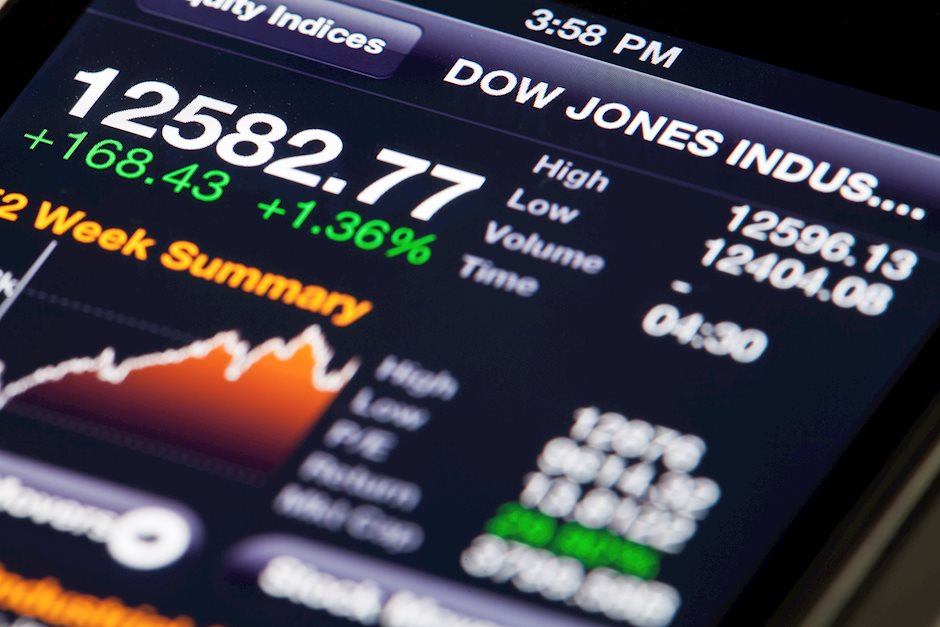Dow Jones Industrial Average breaks late, etches in thin gains on Tuesday
- Dow Jones struggled to make gains on Tuesday, underperforming other indexes.
- Fedspeak is cautiously tilting towards rate cuts, but more progress remains.
- Key US data looms ahead this week with Friday’s NFP over the horizon.

The Dow Jones Industrial Average (DJIA) churned close to flat early on Tuesday, despite an overall uptick in investor risk appetite after Federal Reserve (Fed) officials gave a head-nod to easing inflation pressure in US economic data. The Dow Jones eventually found the gas pedal, climbing around 160 points to chalk in a little over four-tenths of one percent late in the US market session.
US JOLTS Jobs Openings in May ticked up slightly to 8.14 million MoM, easing above the forecast hold near 7.91 million. A slight uptick in available jobs helps to ease tightness in the labor market, giving risk appetite a leg up as softening labor figures will help to bolster rate cut odds from the Federal Reserve (Fed).
Fedspeak has shifted to the optimistic side on the inflation outlook, helping to further prop up broad-market sentiment as markets grind towards key economic figures slated for the rest of the week. Friday’s US Nonfarm Payrolls (NFP) looms large over the horizon, with ADP Employment Change figures slated for Wednesday.
Dow Jones news
The Dow Jones index gave a firmly mixed performance on Tuesday with roughly half of the major equity index’s constituent securities trading into the green for the day. Amazon.com Inc (AMZN) rose 1.5% to $200.25 per share, while Verizon Communications Inc. (VZ) backslid -2.12%, falling to $40.85 per share.
Economic Indicator
JOLTS Job Openings
JOLTS Job Openings is a survey done by the US Bureau of Labor Statistics to help measure job vacancies. It collects data from employers including retailers, manufacturers and different offices each month.
Read more.Last release: Tue Jul 02, 2024 14:00
Frequency: Monthly
Actual: 8.14M
Consensus: 7.91M
Previous: 8.059M
Source: US Bureau of Labor Statistics
Dow Jones technical outlook
A sideways grind has plagued the Dow Jones index since it climbed back into chart territory between 39,500.00 and the 39,000.00 handle. A near-term technical ceiling is baked in at the last swing high into 39,581.00, with the 50-day Exponential Moving Average (EMA) providing an intraday price floor from 38,918.00.
The Dow Jones remains on the low side of all-time highs set just above the 40,000.00 major price handle in May, and a slow recovery from the last major swing low into 38,000.00 threatens to run out of gas.
Dow Jones five minute chart

Dow Jones daily chart

Dow Jones FAQs
The Dow Jones Industrial Average, one of the oldest stock market indices in the world, is compiled of the 30 most traded stocks in the US. The index is price-weighted rather than weighted by capitalization. It is calculated by summing the prices of the constituent stocks and dividing them by a factor, currently 0.152. The index was founded by Charles Dow, who also founded the Wall Street Journal. In later years it has been criticized for not being broadly representative enough because it only tracks 30 conglomerates, unlike broader indices such as the S&P 500.
Many different factors drive the Dow Jones Industrial Average (DJIA). The aggregate performance of the component companies revealed in quarterly company earnings reports is the main one. US and global macroeconomic data also contributes as it impacts on investor sentiment. The level of interest rates, set by the Federal Reserve (Fed), also influences the DJIA as it affects the cost of credit, on which many corporations are heavily reliant. Therefore, inflation can be a major driver as well as other metrics which impact the Fed decisions.
Dow Theory is a method for identifying the primary trend of the stock market developed by Charles Dow. A key step is to compare the direction of the Dow Jones Industrial Average (DJIA) and the Dow Jones Transportation Average (DJTA) and only follow trends where both are moving in the same direction. Volume is a confirmatory criteria. The theory uses elements of peak and trough analysis. Dow’s theory posits three trend phases: accumulation, when smart money starts buying or selling; public participation, when the wider public joins in; and distribution, when the smart money exits.
There are a number of ways to trade the DJIA. One is to use ETFs which allow investors to trade the DJIA as a single security, rather than having to buy shares in all 30 constituent companies. A leading example is the SPDR Dow Jones Industrial Average ETF (DIA). DJIA futures contracts enable traders to speculate on the future value of the index and Options provide the right, but not the obligation, to buy or sell the index at a predetermined price in the future. Mutual funds enable investors to buy a share of a diversified portfolio of DJIA stocks thus providing exposure to the overall index.
Author

Joshua Gibson
FXStreet
Joshua joins the FXStreet team as an Economics and Finance double major from Vancouver Island University with twelve years' experience as an independent trader focusing on technical analysis.

















